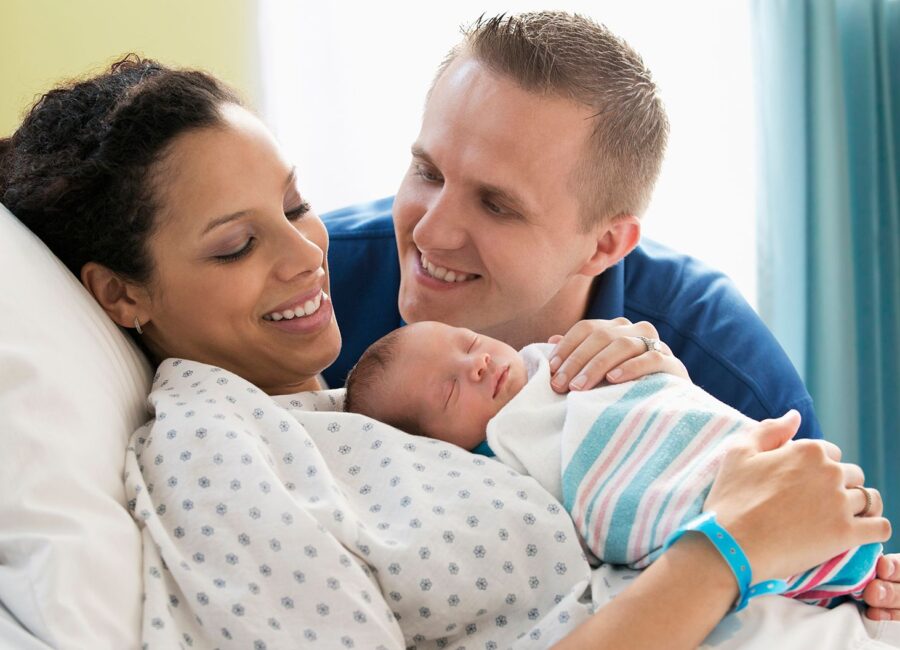
Gastroesophageal reflux disease/GERD in babies is a condition that occurs when stomach acid backs up into the oesophagus or oesophagus. Not only in adults, GERD in infants. Get to know the following characteristics, causes, and ways to treat GERD in babies.
Symptoms of GERD in babies
Starting from vomiting, hiccups to coughing. Here are the characteristics of GERD in babies that parents should be wary of.
1. Spitting up and vomiting
It’s normal for babies to spit up at an early birth age. However, if the spit up looks like it’s forced, it could be a sign of GERD in your baby to watch out for, especially if he’s over 12 months old and often spit up after eating.
Spitting up blood, green, yellow, or coffee grounds like liquid can indicate GERD in your baby or a more serious medical condition. If indeed the spitting up or vomiting experienced by the baby is caused by GERD, this condition is usually followed by crying and discomfort because the baby is in pain.
2. It’s hard to eat
The pain that arises when stomach acid rises into the oesophagus can make the baby refuse to eat. This pain is triggered by irritation caused by stomach acid rising into the oesophagus.
Not only that, but GERD in babies can also make it difficult for your baby to swallow.
3. Often cries while eating
Babies with GERD may cry and scream while being fed. This condition can occur due to discomfort in the stomach and irritation in the oesophagus.
4. Hiccups and discharge from the mouth
Try to watch the baby when he hiccups. If the fluid is coming out of his mouth during hiccups, this condition could indicate your baby has GERD.
5. It’s hard to gain weight
Weight loss or difficulty gaining weight are possible consequences of GERD because this disease can cause the baby to vomit often and not want to eat.
6. Curving his body abnormally
Babies can bend over while eating or after eating if they have GERD. This condition can trigger pain and a burning sensation due to the accumulation of stomach acid in the oesophagus.
7. Frequent cough
GERD can cause a baby to cough frequently due to the presence of stomach acid or food that rises back up to the back of the throat.
8. Baby chokes while eating
The following characteristic of GERD in infants is choking while eating. This condition is generally triggered by stomach acid back up into the oesophagus. The position of the baby’s body while eating can make this condition worse.
Therefore, keep the baby’s body position for at least 30 minutes after eating to prevent food and drink from rising back into his oesophagus.
9. The baby doesn’t sleep well.
GERD can cause babies to feel restless while sleeping. GERD characteristics in babies can be seen when the baby sleeps next to you.
Try to feed your baby a few hours before bedtime to prevent stomach acid from rising into the oesophagus.
Causes of GERD in babies
Infants are more prone to GERD than adults because their lower oesophagal sphincter muscles are still weak or not fully developed.
GERD in infants generally peaks at four months of age and goes away on its own by 12-18 months of age. It is rare to find cases of GERD in infants lasting more than 24 months.
However, if the symptoms of GERD continue to appear after the child turns two years old, it’s a good idea to have your baby checked by a doctor for consultation and find out the exact cause.
In addition, there are several other causes of GERD in babies that cannot be avoided, such as lying down too often, consuming too much fluid, and being born prematurely.
Overcoming GERD in babies

The Mayo Clinic believes that doctors will prescribe medications that block stomach acid, such as cimetidine or famotidine, for babies one month to 12 months old. If the baby is already one year old, the doctor may recommend the medication omeprazole magnesium. It can give these drugs if your baby has these symptoms.
- Poor weight gain
- Refusing to eat
- Proven to have inflammation of the oesophagus
- Have asthma and chronic gastric acid.
In rare cases, the doctor may also ask the child to undergo a surgical procedure to tighten the oesophagal sphincter muscle to prevent stomach acid from flowing back into the oesophagus.
However, this procedure will only be done if your baby has growth and breathing problems due to GERD.
When should you go to the doctor?
Here are some related conditions that require your baby to be taken to the doctor for further examination.
- No weight gain
- Often vomits food or stomach contents from the mouth
- Spewing green or yellow liquid
- Vomiting blood or something that looks like coffee grounds
- Refuses to eat
- Bloody stools
- Difficulty breathing
- Chronic coughs
- Anger and crying unusually after eating.
It can find the various symptoms in severe medical conditions, such as GERD or blockage of the baby’s digestive tract. Immediately come to the doctor to get the proper treatment.



